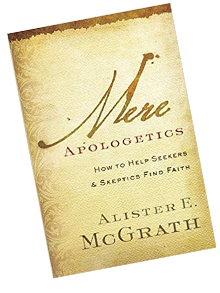Back to series
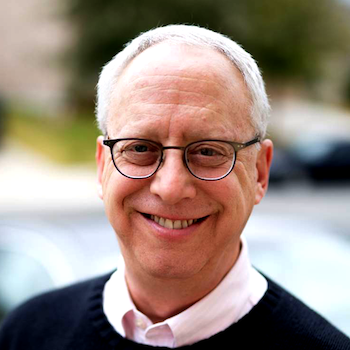

Recommended Reading:
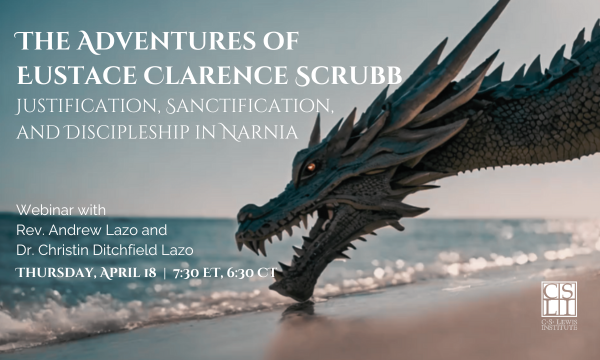
A Multifaceted Gospel for Multifaceted People
Click here to open a Print-Friendly PDF
Amy1 felt exhausted. Understandably so. Her high school guidance counselor told her she would need “a lot of extracurricular activities” on her college application to get accepted anywhere. So she joined the swim team, the cheerleading squad, the chess club, the yearbook committee, and several other clubs to impress a variety of admissions offices. And it worked! She got accepted to her first choice college.
During her first semester, she thought she should join a lot of extracurricular activities so she’d have a great résumé when applying for jobs after college. So she joined several preprofessional associations as well as a sorority, the women’s flag football team, and other clubs to fill her schedule to the brim.
“All of a sudden I was just overwhelmed and realized I didn’t want the rest of my life to be just like high school. Jobs, leadership, having authority, respect from others… [those things] weren’t what satisfied me or made me happy. I was just so overwhelmed.”
Sometime during that first year, a friend invited her to a Christian organization’s weekly meeting. Thinking that too would look good on a résumé, she went. I asked if she liked the meeting. She shrugged her shoulders. I asked what she remembered. “Not much.”
“Did somebody speak?” I asked. She couldn’t remember who or about what. She did remember that someone (not the main speaker) quoted something from the Bible: “Come to me, all you who are weary and burdened, and I will give you rest.”2 It was Matthew 11:28, but that didn’t matter to her at the time.
What caught her attention was “finding your rest in God — that hit me because that’s what I was looking for. That was a biggie!” Curious how Jesus might have something to do with “rest,” she signed up for a Bible study and started regular meetings with an older Christian student. Less than two months later, she became a Christian.
Multifaceted People
What struck me about Amy’s story was how it differed from all the others I interviewed for my research about evangelism. She linked to the gospel through the hinge of “rest.” No one else said that. Yes, there was great diversity in what motivated others to move forward in the journey from unbelief to faith. Several talked about the need for forgiveness of sins. But not as many as you might expect.
Rebecca told me she needed cleansing from the damage caused by sin. That’s slightly different from the need for forgiveness for sins committed. She did acknowledge her need for forgiveness in the classic sense of how we think about the gospel. But that’s not how she began her description of her experience. Andrew spoke of how coming to faith “lifted a burden” caused by a sinful lifestyle. Alyssa described something different than a cleansing. For her, it was more of a “total makeover” that removed a feeling of shame.
Several people told how a sense of belonging dominated their stories. They found new communities that felt so different from their networks of shallow friendships or the dysfunction of their families.
For Jack, it was a sense of cohesion; the gospel helped him make sense of all of life. Nathaniel described a relief from lifelong anger, a relief that started when he heard how Jesus’s death satisfied both God’s holy anger and infinite love for him. And Miles told me how thrilled he was when he realized God was an authority worth following.
For some, intellectual answers paved the route to the gospel. For others, emotions dominated the story. I had one fascinating conversation with a married couple, Gary and Maureen, whose stories contrasted dramatically.
His involved logic; hers was drenched in tears. He read books in a library; she wept through worship songs at a church. He devoured internet articles on apologetics; she couldn’t believe God could love her with all her sin and shame.
And quite a few people mentioned differing factors that played a part in their stories. They wove together intellect, emotions, social connections, and other factors in a balanced way. At the end of all my interviews, I asked people to sum up their narratives by identifying the three most significant parts of their journey. I started making elaborate color-coded charts to display the rainbow of suggestions — intellectual questions indicated as green, emotional struggles coded as blue, relational connections shaded as pink, and so forth. Here’s my point: no person’s list was monochromatic.
Along these lines, we have much to learn from Christian philosopher Clifford Williams. He states his view of conversion this way: “Most people of faith acquire their faith partly because they feel that it meets… existential needs and partly because they think it makes sense or is true.”3
For Williams, coming to faith involves both “need and reason, an interplay that cannot be neatly demarcated.” And he warns, “Theorists may have a clear-cut distinction in mind, but when we look at how people actually come to faith, the distinction gets blurred.”4
Some of the “existential needs” he lists can be expressed like this:
• “I need to feel that life ultimately makes sense.”
• “I need to anticipate some kind of life after this earthly experience ends.”
• “Even though this life has many disappointments, I need to rely on the possibility of a place after this life — one without disappointments or pain or evil or sadness.”
• “I need to trust that there is such a thing as goodness and beauty and purity.”
• “I need to love and be loved. And those emotions are not just illusions.”
• “I crave meaning — not just in temporary ways but in ways that last forever.”5
The great news for us is that the gospel satisfies those and many other needs while also answering many rational questions.
Our Multifaceted Message
 We need to see connections between the diversity of faith experiences and the richness of the gospel. We have a multifaceted message that connects with complex people in a variety of ways. Do you resist this? Do you fear I might lose the centrality of the atonement in all this? I understand your caution. I fear the same danger.
We need to see connections between the diversity of faith experiences and the richness of the gospel. We have a multifaceted message that connects with complex people in a variety of ways. Do you resist this? Do you fear I might lose the centrality of the atonement in all this? I understand your caution. I fear the same danger.
And church history is littered with times when people replaced the atonement with other things and, in the process, lost the gospel. As J.I. Packer observes, “Throughout my sixty-three years as an evangelical believer, the penal substitutionary understanding of the cross of Christ has been a flashpoint of controversy and division among Protestants.”6
Hoping not to diminish the centrality of substitutionary atonement, let’s consider some of the many words the New Testament uses to proclaim, explain, or unpack the implications of that substitutionary atonement — propitiation, justification, salvation, rebirth, regeneration, redemption, reconciliation, and sanctification.
If the Bible itself employs various terms to highlight different aspects of our gospel message, we shouldn’t be gun-shy to do likewise. For some of our hearers, the judicial image of propitiation will resonate. For others, the economic concept of redemption will make more sense. Still others will have the lightbulb turn on through the courtroom vocabulary of justification. And another crowd may be reached best through familial, relational terms such as reconciliation or adoption.
We might also try a variety of ways to talk about God and see which connects most compellingly. The Bible refers to God as a father, a husband, a judge, a king, a priest, among other roles. Some people are longing to hear of a father who pursues. Still others hunger for a husband who reconciles. Others want to find a judge who pardons. Why stick with just one image or title or dimension if God has chosen to reveal himself in numerous, diverse ways.
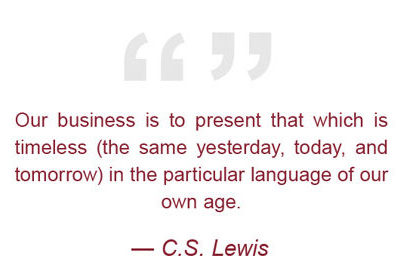 The diversity and richness of the New Testament’s discussions of the gospel allow for and, indeed, demand diversity in evangelistic strategies. This is why we see modeled in the New Testament itself a variety of approaches to preaching for conversion. Don Carson lists eight such motivations: fear of judgment, the burden of guilt, shame, the need for future grace, the attractiveness of truth, a general despairing sense of need, response to grace and love, and a desire to be on the side of what is right. He concludes, “We do not have the right to choose only one of these motivations in people and to appeal to it restrictively.”7
The diversity and richness of the New Testament’s discussions of the gospel allow for and, indeed, demand diversity in evangelistic strategies. This is why we see modeled in the New Testament itself a variety of approaches to preaching for conversion. Don Carson lists eight such motivations: fear of judgment, the burden of guilt, shame, the need for future grace, the attractiveness of truth, a general despairing sense of need, response to grace and love, and a desire to be on the side of what is right. He concludes, “We do not have the right to choose only one of these motivations in people and to appeal to it restrictively.”7
We must tell people of their objective guilt before a righteous God. In fact, this must maintain its central place as the nonnegotiable heart of our message. But our starting point for evangelistic discussions can begin in a variety of places. We see a classic example of this in Mark 2:1–12: a man is brought to Jesus for physical healing (which Jesus does address!) but soon finds he has a greater need for forgiveness.
We can proclaim our multifaceted gospel to multifaceted people by using a variety of analogies. Readers of Mere Christianity see the many illustrations and analogies C.S. Lewis paraded out to try to connect with diverse people. Michael Ward offers what he calls a “brief survey” of Lewis’s images of conversion:
Becoming a Christian (passing from death to life) is like joining in a campaign of sabotage, like falling at someone’s feet or putting yourself in someone’s hands, like taking on board fuel or food, like laying down your rebel arms and surrendering, saying sorry, laying yourself open, turning full speed astern; it is like killing part of yourself, like learning to walk or to write, like buying God a present with his own money; it is like a drowning man clutching at a rescuer’s hand, like a tin soldier or a statue becoming alive, like waking after a long sleep, like getting close to someone or becoming infected, like dressing up or pretending or playing; it is like emerging from the womb or hatching from an egg; it is like a compass needle swinging to north, or a cottage being made into a palace, or a field being plowed and reshown, or a horse turning into a Pegasus, or a greenhouse roof becoming bright in the sunlight; it is like coming around from anesthetic, like coming in out of the wind, like going home.8
 Does all this overwhelm you? I hope it does just the opposite. A deep appreciation for the richness of the gospel can liberate us from presenting the gospel in just one way. It can expand our effectiveness and broaden the scope of our outreach. It can also reach deeper to aches that throb far below the surface. Then the gospel can penetrate in ways we might not have expected or even known about.
Does all this overwhelm you? I hope it does just the opposite. A deep appreciation for the richness of the gospel can liberate us from presenting the gospel in just one way. It can expand our effectiveness and broaden the scope of our outreach. It can also reach deeper to aches that throb far below the surface. Then the gospel can penetrate in ways we might not have expected or even known about.
I have found help in expressing this from a new vocabulary term: capaciousness. At least, it was new to me when I first read it in Alister McGrath’s excellent book Mere Apologetics: How to Help Seekers and Skeptics Find Faith. Merriam-Webster defines capacious as “containing or capable of containing a great deal.” You can see the idea of capacity in the word. McGrath says, “Apologetics is grounded in a deep appreciation of the intellectual capaciousness and spiritual richness of the Christian faith.”9 And, “The intellectual capaciousness of the Christian faith is one of its greatest strengths, and it has considerable apologetic potential.”10
I would go further. Not only does the gospel have “intellectual capaciousness,” it also has emotional and existential capaciousness. In other words, the gospel can touch people on many levels. It can help make sense of our world better than other worldviews. It can also satisfy deep longings and relieve deep-seated pain.
Yet another way to consider the richness of the gospel and its relation to people’s holistic nature can be seen through the word shalom. Far more than meaning peace or a mere absence of hostility, this important Hebrew term implies “completion and fulfillment — of entering into a state of wholeness and unity, a restored relationship.”11 A form of the word is even used to describe the whole (i.e., uncut) stones for the altar (Deut. 27:6; Josh. 8:31) and also of the dressed stones used for the temple (1 Kings 6:7).12 When Paul wrote, “since we have been justified through faith, we have peace with God” (Rom. 5:1), he had a fuller picture in mind than mere positional truth.
We need to reflect often, deeply, and comprehensively on the gospel so we see and appreciate its capaciousness. Then we’ll be able to converse with people about a very wide range of topics and see the links to God’s good news.
To quote Clifford Williams again, “A rich and lively faith cannot consist simply of intellectual assent. It has to have the emotional depth that Christian virtues such as love, joy, peace, patience and kindness possess.”13 Hopefully people may someday say about us what Owen Barfield once said about his friend C.S. Lewis: “Somehow what he thought about everything was secretly present in what he said about anything.”14
Our Multifaceted Neighbors
The unsaved people God places around us need the new life offered by the cross. We may not see the underlying dramas, but we can trust God’s power to penetrate their facades of satisfaction and self-reliance. Our capacious gospel can bring wholeness and shalom to people on numerous levels — even if we can’t see all their dramas when we evangelize. For our hearers, our good news may be even better than we think.
 Consider examples from the lives of two well-known people: Christopher Hitchens and Michael Richards. Hitchens’s intellectual prowess and the limits thereof are well known.
Consider examples from the lives of two well-known people: Christopher Hitchens and Michael Richards. Hitchens’s intellectual prowess and the limits thereof are well known.
What many people don’t know involves the pain lurking behind his many intellectual tirades. I’ve always marveled at Hitchens’s brilliant writing and fluid style of expressing complex issues. I wept as I read his book Mortality, in which he described his battle with and ultimate succumbing to esophageal cancer.
As only Christopher could, he maintained a sense of humor as he approached the end of his life with quips like “The thing about Stage Four [cancer] is that there is no such thing as Stage Five.”15 I remember hearing him respond to an NPR interviewer regarding his personal memoir, Hitch 22. When asked why his mother played such a prominent role in his book, Hitchens replied:
Her story’s a tragic one and it ended tragically, in that having waited I think rather too long, because divorce and separation were extremely frowned upon in that set in those days. She did take up with another man after my brother and I had grown up, and it didn’t quite work out. In fact, it didn’t work out at all. And they made a decision to put an end to their lives and committed suicide together in Athens.
I think I had a chance to save her and failed to grasp it. She tried to call me from Athens and failed. Though I might have just missed the call by a few minutes, I don’t know. But I’ve always been certain that if she’d heard my voice, she wouldn’t have done it. So I’ve been trying to write my way out of that ever since.16
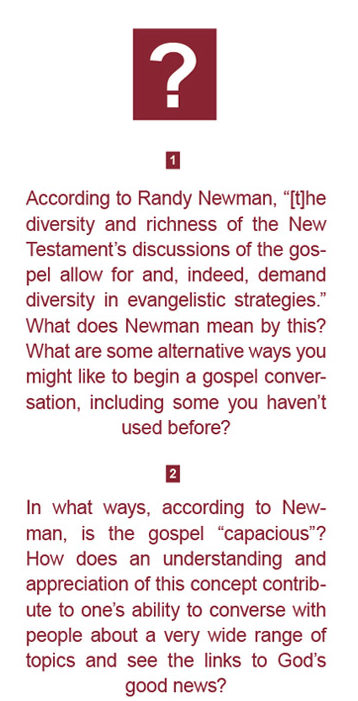 You don’t need a degree in psychology to grasp how deep that pain dug into Hitchens’s life. Perhaps that’s why he drank so much alcohol. He needed a salvation more effective than “trying to write his way out of that.” The gospel is capacious enough to lift a burden that's heavy.
You don’t need a degree in psychology to grasp how deep that pain dug into Hitchens’s life. Perhaps that’s why he drank so much alcohol. He needed a salvation more effective than “trying to write his way out of that.” The gospel is capacious enough to lift a burden that's heavy.
Michael Richards also needs the capacious gospel to help him with his guilt. Most people know Richards as Kramer from the television sitcom Seinfeld. A brilliant physical comic, Richards returned to comedy clubs after the finale of Seinfeld’s eight-year television run. He probably would have found immense success in the stand-up world, given his level of fame.
But one fateful night he responded to an African American man in the crowd with a slew of ethnic slurs. An arsenal of cell phone cameras caught it, and the video went viral. Richards’s racism destroyed his career and harmed him far beyond the stage.
If you can handle it, you might be able to find the video of the comedian’s racial tirade online, along with several appearances on late-night television shows where Richards tried to apologize profusely. But the sincerity of his contrition never opened up doors for more comedy gigs. As best as I can tell, he still hasn’t found absolution.
Seven years later, as he and Jerry Seinfeld conversed on the internet program Comedians in Cars Getting Coffee, they broached the painful subject of Michael’s meltdown on stage.17
“I busted up,” Richards told his obviously concerned and compassionate friend. “It broke me down.” He confessed it as inexcusable. “It was a selfish response… I should have been working selflessly.” He even told how he tried to escape by taking a solitary vacation to Bali—about as far away from the comedy club as he could run. He thanked Jerry for “sticking by me” but admitted, “Inside, it still kicks me around.”
If you watch the episode, it’s hard not to notice the pain on Richards’s face and the equally intense concern on Seinfeld’s. Trying to offer pardon, Jerry said, “Well, that’s up to you. If I were you, I’d tell myself, ‘I’ve been carrying this long enough. I’m gonna put it down now.’” As the camera zoomed in on Richards, he softly replied, “Yeah. Yeah.” But I wasn’t convinced he’d found the atonement he needed. Despite the pronouncement from the high priest of comedy, Jerry Seinfeld, Michael Richards’s sin needed more than just the self-effort of letting go of a burden.
We all need the once-for-all finished sacrifice of the Messiah. That is the wonderful news we proclaim – the multifaceted gospel for multifaceted people. May God be pleased to use us as we reach out in our day with the ageless, timeless, capacious gospel.
|
Notes:
|
|||

Randy Newman
Senior Fellow for Apologetics and Evangelism, CSLI Randy Newman is the Senior Fellow for Apologetics and Evangelism at the C.S. Lewis Institute. He has taught at several evangelical seminaries. After serving for over 30 years with Campus Crusade for Christ, he established Connection Points, a ministry to help Christians engage people’s hearts the way Jesus did. He has written seven books, Questioning Evangelism, Corner Conversations, Bringing the Gospel Home, Engaging with Jewish People, Unlikely Converts: Improbable Stories of Faith and What They Teach Us About Evangelism, Mere Evangelism. and his most recent, Questioning Faith: Indirect Journeys of Belief through Terrains of Doubt. Randy has also written numerous articles about evangelism and other ways our lives intertwine with God’s creation. He earned his MDiv and PhD in Intercultural Studies from Trinity International University.
Recommended Reading:
Alister E. McGrath, Mere Apologetics: How to Help Seekers and Skeptics Find Faith (Baker Books, 2012)
Throughout history there have been great and articulate defenders of the faith, from Augustine and Aquinas to Jonathan Edwards, G. K. Chesterton, Francis Schaeffer, and C. S. Lewis. But with new challenges comes the need for a fresh apologetic that specifically addresses the arguments levied against faith in our time of scientific atheism and skepticism.
In the spirit of C. S. Lewis's Mere Christianity, Alister McGrath's Mere Apologetics seeks to equip readers to engage gracefully and intelligently with the challenges facing the faith today while drawing appropriately on the wisdom of the past. Rather than supplying the fine detail of every apologetic issue in order to win arguments, Mere Apologetics teaches a method that appeals not only to the mind but also to the heart and the imagination. This highly accessible, easy-to-read book is perfect for pastors, teachers, students, and lay people who want to speak clearly and lovingly to the issues that confront people of faith today.
 COPYRIGHT: This publication is published by C.S. Lewis Institute; 8001 Braddock Road, Suite 301; Springfield, VA 22151. Portions of the publication may be reproduced for noncommercial, local church or ministry use without prior permission. Electronic copies of the PDF files may be duplicated and transmitted via e-mail for personal and church use. Articles may not be modified without prior written permission of the Institute. For questions, contact the Institute: 703.914.5602 or email us.
COPYRIGHT: This publication is published by C.S. Lewis Institute; 8001 Braddock Road, Suite 301; Springfield, VA 22151. Portions of the publication may be reproduced for noncommercial, local church or ministry use without prior permission. Electronic copies of the PDF files may be duplicated and transmitted via e-mail for personal and church use. Articles may not be modified without prior written permission of the Institute. For questions, contact the Institute: 703.914.5602 or email us.
-
Recent Podcasts
The Side B Stories – Dr. James Tour’s story
by Jana Harmon, James Tour on April 12, 2024From a secular Jewish home, scientific scholar and...Read More
-
Why are Christians so Bad?
by Paul Joen on April 5, 2024
-
Questions That Matter Podcast – Dai Hankey and Gospel Hope for Weary Souls
by Randy Newman, Dai Hankey on April 5, 2024
-
Recent Publications
Isn’t Morality Relative?
by Christopher L. Reese on April 1, 2024It is widely accepted in the Western world...Read More
-
Do Muslims and Christians Worship the Same God?
by Andy Bannister on March 1, 2024
-
Artificial Intelligence and Its Impacts on Humanity
by John Lennox on February 13, 2024
0
All Booked
0.00
All Booked
0.00
All Booked
21934
GLOBAL EVENT: The Adventures of Eustace Clarence Scrubb (CSLI-Atlanta & CSLI-Chicago) 7:30PM ET/ 6:30PM CT
https://www.cslewisinstitute.org/?event=global-event-the-adventures-of-eustace-clarence-scrubb-csli-atlanta-csli-chicago-730pm-et-630pm-ct&event_date=2024-04-18®=1
https://www.paypal.com/cgi-bin/webscr
2024-04-18

Next coming event
Days
Hours
Minutes
Seconds
GLOBAL EVENT: The Adventures of Eustace Clarence Scrubb (CSLI-Atlanta & CSLI-Chicago) 7:30PM ET/ 6:30PM CT
On April 18, 2024 at 7:30 pm Virtual Online EventSpeakers

Randy Newman
Senior Fellow for Apologetics and Evangelism, CSLI
Team Members

Randy Newman
Senior Fellow for Apologetics and Evangelism, CSLIRandy Newman is the Senior Fellow for Apologetics and Evangelism at the C.S. Lewis Institute. He has taught at several evangelical seminaries. After serving for over 30 years with Campus Crusade for Christ, he established Connection Points, a ministry to help Christians engage people’s hearts the way Jesus did. He has written seven books, Questioning Evangelism, Corner Conversations, Bringing the Gospel Home, Engaging with Jewish People, Unlikely Converts: Improbable Stories of Faith and What They Teach Us About Evangelism, Mere Evangelism. and his most recent, Questioning Faith: Indirect Journeys of Belief through Terrains of Doubt. Randy has also written numerous articles about evangelism and other ways our lives intertwine with God’s creation. He earned his MDiv and PhD in Intercultural Studies from Trinity International University.


